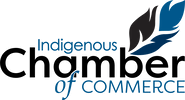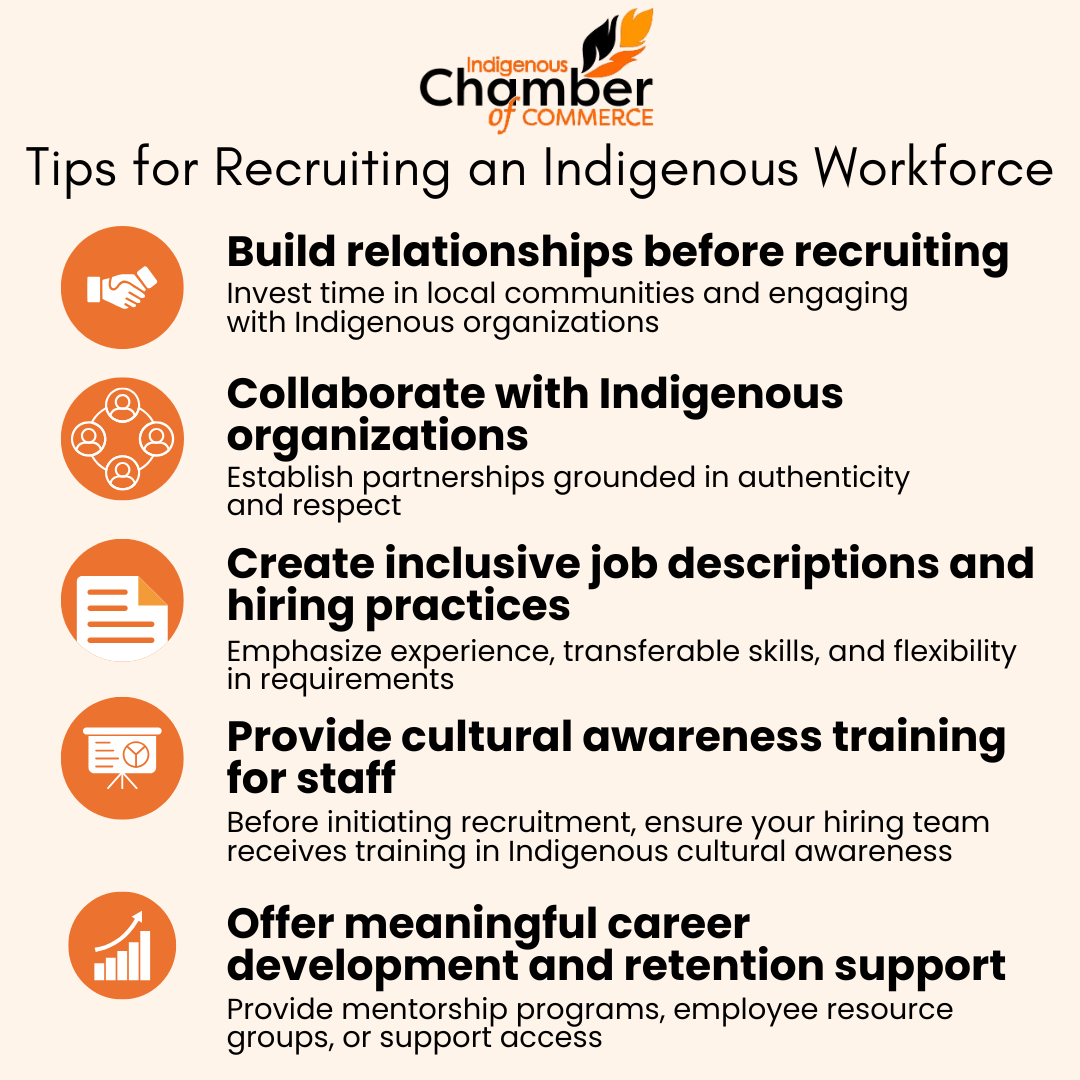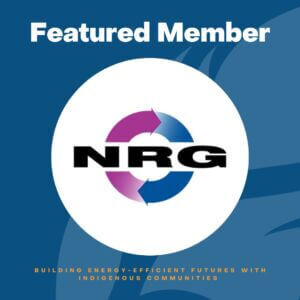by ICC Staff
As businesses in Canada and beyond seek to foster diversity, equity, and inclusion, recruiting Indigenous talent has become both a social imperative and a strategic advantage. According to McKinsey & Co., a global management consulting firm, diverse workplaces outperform their peers and deliver faster growth. The business case for hiring diverse candidates is clear.
Indigenous employees contribute unique insights and valuable perspectives to their workplaces, yet remain underemployed relative to their non-Indigenous peers, according to Statistics Canada. To address this gap, employers must approach Indigenous recruitment with good intentions, respect, and cultural understanding. Here, we propose several recommendations for recruiting and retaining Indigenous employees.
1. Build Relationships Before Recruiting
Successful Indigenous recruitment begins with relationship-building. Many Indigenous communities value long-term, trust-based relationships over transactional engagement.
Employers can signal their commitments by investing time in local communities and engaging with Indigenous organizations.
University campuses are an excellent starting point for recruitment. They are home to a pool of talented Indigenous students actively seeking opportunities to apply their skills and contribute to their communities. Moreover, overtime the share of Indigenous students at post-secondary institutions is expected to growth as demographic changes occur.
Career development offices can also serve as valuable partners in connecting you with ambitious candidates. Additionally, establishing a strong reputation as an employer of choice among students can foster long-term relationships and build a steady pipeline of future talent.
2. Collaborate with Indigenous Organizations
Building partnerships with Indigenous organizations can help connect you with potential candidates and ensure job opportunities are better aligned with Indigenous cultural and economic contexts. However, such partnerships must be grounded in authenticity and respect.
This means demonstrating a meaningful commitment to reconciliation and long-term relationship-building. It is important, therefore, to take these commitments seriously and understand that building long-term relationships requires effort beyond mere transactions.
3. Create Inclusive Job Descriptions and Hiring Practices
Avoiding jargon or overly rigid credential requirements that may unintentionally exclude Indigenous candidates in job postings is a good first step. Emphasize experience and transferable skills and, where possible, offer flexibility in educational or certification requirements.
4. Provide Cultural Awareness Training for Staff
Before initiating recruitment, ensure that your HR team and hiring managers receive training in Indigenous cultural awareness. Organizations like the Indigenous Chamber of Commerce (ICC) have training opportunities and resources to help businesses develop inclusive workspaces.
5. Offer Meaningful Career Development and Retention Support
Retention is just as important as recruitment. Indigenous employees should see pathways to advancement and feel welcomed and supported within the organization. This could involve mentorship programs, Indigenous employee resource groups, access to support, or opportunities to incorporate Indigenous worldviews into their roles.
6. Respect Indigenous Ways of Knowing and Doing
Understand that Indigenous worldviews may differ from Western approaches. Be open to different styles of work and ways of problem-solving. Making space for Indigenous knowledge in your workplace enhances both inclusion and innovation. By building relationships, adapting hiring practices, and creating inclusive environments, organizations can attract Indigenous candidates and contribute to reconciliation in meaningful ways.
Join Our Newsletter
As Manitoba's voice for Indigenous business and your partner in economic reconciliation, we connect you to opportunities that drive change. Subscribe to receive updates on Indigenous business developments, partnership opportunities, and upcoming events delivered straight to your inbox.




